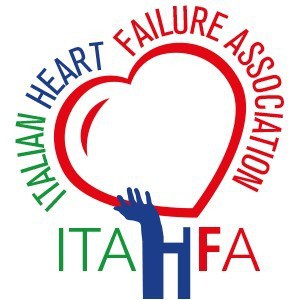"- So my name is Michelle Goonasekera and I am a clinical research fellow attached to the Nuffield Department of Population Health at the University of Oxford. I'm a nephrology registrar by training, but I am currently working on cardiovascular trials and that's me.
What is the importance of this study?
So many people will be familiar with the original ASCEND study which looked into the effects of randomization to aspirin versus placebo and separately to omega-3 fatty acids versus placebo on atherosclerotic cardiovascular disease. So our study's a second re-analysis of that original study, looking into what the effects of these two medications are on heart failure because heart failure is a condition that affects individuals with diabetes in particular. And there are over 400 million people worldwide with diabetes, and there are doubts and uncertainties in the current research areas about what the true effects of aspirin and omega-3 fatty acids are on heart failure. So we are hoping that this study will add further information to that mix.
What was the study design and what were the considerations around choosing the dosage of omega-3 (n3) fatty acid?
The ASCEND study was a double-blind, placebo-controlled, randomised trial, which had a two-by-two factorial design. And we randomised people to aspirin versus placebo and separately to omega-3 fatty acids versus placebo and that was a total of over 15,000 participants. We conducted our follow-up using mail-based follow-up methods, using questionnaires every six months. And importantly, we also had access to routinely collected data which we used in outcome ascertainment which I think is an important methodological piece of work that we did as well. And in terms of selecting the omega-3 fatty acid dose, at the time that ASCEND started, 1g was the dose that was in use and we had evidence for, because I think studies like JELIS and suggested that there could be a benefit of the 1g dose of omega-3 fatty acid, which is the rationale for using it. And unlike the newer studies, which are looking at the effects of triglyceride lowering, which was not a goal in ASCEND.
What are the key results?
So the primary outcome of our analysis is the effects of randomization to aspirin and separately of randomization to omega-3 fatty acids versus placebo on hospitalizations or death due to heart failure, with our key secondary outcomes being the individual components of the primary outcome. And for the aspirin result, we've shown that randomization to aspirin does not have a significant effect on the primary outcome of death due to heart failure or hospitalizations for heart failure. The rate ratio was 0.98, and our confidence intervals extended down towards a proportional benefit of 17% and up towards a proportional hazard of 17%. And there were no significant effects on the secondary outcomes of hospitalisation for heart failure or death due to heart failure. For omega-3 fatty acids, there was again no significant effect of omega-3 fatty acids. The rate ratio for the primary outcome was 0.88, with confidence intervals here extending down towards a proportional 26% reduction and up towards proportional 5% hazard. So, in summary, there was no significant benefit, but for omega-3, we've ruled out any hazard, but there is a possibility of benefit as much as 26%. Whereas for aspirin, we can't fully rule out small to moderate harm or benefit.
What are the future directions for omega-3 fatty acids in prevention?
I think now that there's a lot of different studies looking into this question of what the effects are on heart failure, the next step would probably be to undertake a more broad meta-analysis of all the data to try and see what the trend is based on all the different studies and whether it's confirmed in a final pooled result. And for aspirin, we don't really have enough data because we've got this study result that's come out. And then ASPREE, which is a trial of old adults looking into primary prevention, has published their results showing no significant effect. So those are the only two studies that are out there. Hopefully perhaps the ARRIVE trial also does some analysis on heart failure outcomes. We may have enough data to look into the question and answer it more definitively so that we can move on to other areas. I think with aspirin, currently the problem is that we don't have enough benefit in the primary prevention setting that can counterbalance the increased risk of bleeding.
What are the key take-home messages?
So I think the key message here is that randomization to aspirin versus placebo did not have any significant effect on hospitalizations or death due to heart failure, but we couldn't rule out the possibility of a small to moderate benefit or harm. And for omega-3 fatty acids, again, we did not find a significant effect of randomization to omega-3. However, there we ruled out the likelihood of harm, but there's still the possibility of modest benefit that we haven't been able to exclude. Thank you.







